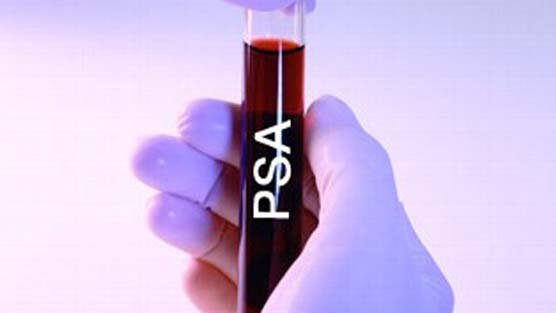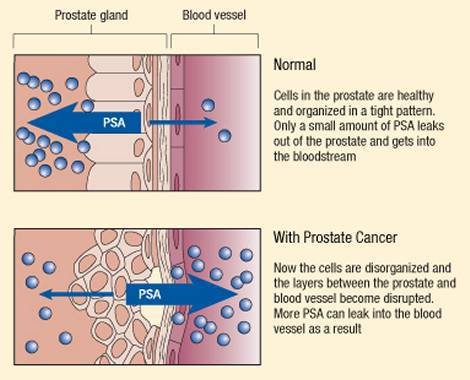Hello Steemians !

PSA screening is widely used tool for prostate cancer screening. Untill 2008 many doctors and professionals considered PSA screening to be done for men at their beginning of 50s. Some also considered PSA screening at the age 40, who are at higher risk of cancer including hereditary and African American men.With these lines you can imagine how popular PSA screening test was .So, Today I will basically comment my views on PSA screening considering its benefit for early detection of cancer and its influence on cancer mortality.
WHAT IS PSA?
Prostate specific antigen is a protein secreted by prostatic cells. These protein are secreted on semen which makes it more watery so that sperm can swim in it. Some of this constantly enter bloodstream which is used for screening.
Besides Cancer, PSA can also increase in following conditions:-
- BPH [I have written a separate article on BPH]
- Inflammation of prostate
- when the prostate is pressed or irritated ( i.e on Per Rectal examination

So , What is the normal level of PSA ?
Generally < 4ng/ml is considered normal. But remember normal level of PSA doesn't signify cancer free. Some rapidly growing tumor may not increase PSA level significantly [1]. Here comes the importance of Biopsy. It is still a controversy when to consider biopsy .But , German medical specialist organizations have considered taking a biopsy in the following two cases cases[2]:
- PSA levels are higher than 4 nanograms per milliliter (ng/mL) and a second test gives the same results.
- PSA levels increase considerably between several measurements.
Some still recommend biopsy at PSA level more than 3ng / ml.
WHAT DOES research shows about PSA screening test? Two of the most famous research done till date are:-
- European study :- enrolled 162,000 men aged between 55 and 69[3].Half of the men were offered PSA testing and in half ot hem PSA testing was not done. For 13 years (till 2015), researchers have been identifying how many men developed cancer.PSA was done in the interval of 4 yrs.
- US study :- enrolled 77,000 men aged between 55 to 74 years[4]
Out of 1,000 men, tested for PSA ( age between 55 to 69 ) , in 323 there was high level of PSA (> 3ng/ml)
Biopsy was done in all 323 which showed cancer in 78[5].out of 1000, 29 of the patients actually had tumor ( BUT PSA level was < 3ng /ml)
CONCLUSION:- Approx. 75% positive PSA tests are false positives.
Which is not a good number.Does screening decreases mortality of cancer?
In 13 years of European study ,
5 out of 1,000 (who underwent PSA testing) died from prostate cancer.
6 out of 1,000 (in whom PSA testing was not done) died from prostate cancer.So, what does this mean?
It means that PSA testing helps in saving 1 life out of 1,000 men. Or in other words , to save life of 1 men one should do screening of 1,000 men[6]In 13 years of US study, the result is even worse.
4250 men had been diagnosed with cancer in the interventional group and with 3815 men in the control group.
The mortality rate in interventional group was 3.7 per 10,000 but in control group was 3.4 per 10,000.[7]
This is not a statically significant figure.CONSLUSION:-Screening does reduce the mortality but NOT SIGNIFICANTLY
At Last,
After analyzing all these data it is very much difficult to say whether we need PSA screening or not.We don't see much of benefits of PSA testing.75% of false positive result is a bad figure. At this moment patient may be scared of cancer which they actually don't have . It may lead to unnecessary money expenditure including biopsy ( which in most of the case turns out to be negative). Oh ! how could we forget complication of biopsy ( chances of infection , bleeding) ? This makes the situation even worse.
Talking about reducing mortality doesn't seem a good idea at this point.1000 screening to save life of 1 patient is a controversary topic ( US study have even worse statictics ).
One really good advantage is that cancer can be detected very early. So, one can start less aggressive therapy - resulting in less side effect.
References
1.http://www.mayoclinic.org/diseases-conditions/prostate-cancer/in-depth/prostate-cancer/art-20048087)
2.(https://www.ncbi.nlm.nih.gov/pubmedhealth/PMH0073029/)
3.(https://www.ncbi.nlm.nih.gov/pmc/articles/PMC3183963/)
4.(https://www.ncbi.nlm.nih.gov/pubmed/22228146)
Thanks for reading ! Any feedback and comments are highly welcome.
DON'T FORGET TO RESTEEM, UPVOTE AND FOLLOW

Very well written, the verdict is still out. One thing that you didn't mention which makes it somewhat difficult to interpret some of the studies it's something called leadtime bias. With this basically means is that your diagnosing the cancer earlier. So even though study may have collected data for 13 years it might not be long enough to show a treatment effect.
This gem of a post was discovered by the OCD Team!
Reply to this comment if you accept, and are willing to let us promote your gem of a post!
If you accept this, you'll be nominated and the members of the OCD team will vote on whether we'll feature your post in our next compilation post.
You can follow @ocd – learn more about the project and see other Gems! We strive for transparency.
I'm mostly curating in #science and am always glad to see quality posts like yours peeking out between the garbage and plagiarism!
Yes , I accept it. Thanks @suesa and @ocd for finding this post helpful.
Congrats on your OCD nomination! This was such a well put together and informative article! Ive seen similar articles about pap tests and how they can frighten people into making decisions that are too extreme, especially in in-situ scenarios.
Thanks @battlr . All these test can frighten a normal people too ( because of high false positive finding).
interesting. But I guess those company make these test would not admit that probably. and i guess the antigen test should be pretty expensive right?
They earn money. Why to admit ?
It varies , around $60 .
I have a history of prostate cancer in my family, so I'll be sharing this with them. Appreciate the comprehensive review.
Thanks for reading @teslalifestyle. Yes , there is a great possibility of sharing . This is the main problem with all genetically linked disease